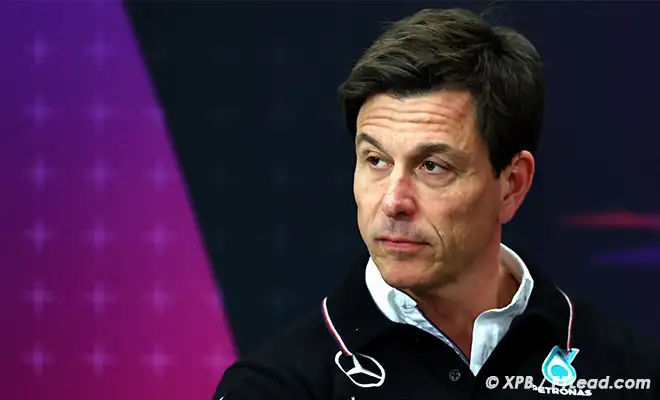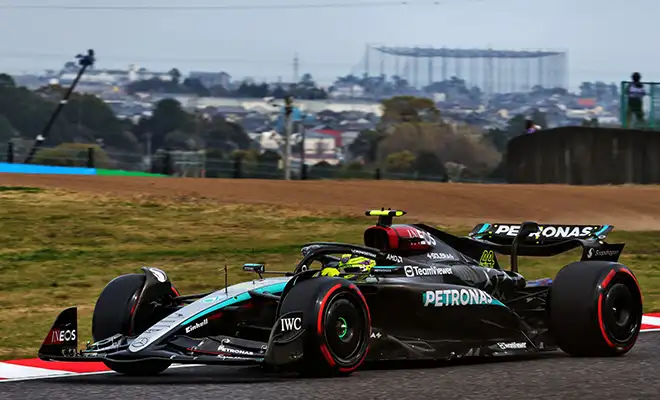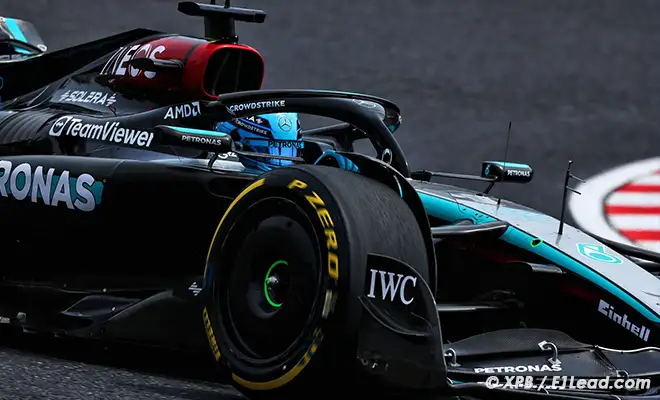n an unexpected move, Toto Wolff attends the Japanese GP, aiming to boost Mercedes F1 amid struggles, signaling his commitment to the team’s resurgence.
Though Toto Wolff had initially not planned to attend the Japanese Grand Prix this weekend, he is indeed present at the Suzuka paddock. His reason for this is straightforward: as Mercedes F1’s director, he wants to support his team through a challenging period and help them return to their peak performance as quickly as possible.
“I had intended not to come to Japan because there’s so much to be done in Europe. However, I felt that would have been the wrong choice. I believe it’s important to be with the race team. Being close to the action is beneficial for me. We’re trying out several things, and being part of the team really energizes me. I hope it does the same for the team members. That’s why I decided not to stay in Europe.”
“We are a team. We’ve won eight consecutive constructors’ titles, which is unprecedented. There are times when we struggle like any other sports team, and we can’t win every time. That’s why it’s a great challenge. It’s not about just one race, nor is it about winning just one season; this is the third consecutive season of such a challenge. But I remain absolutely convinced that when we look back in a few years, we’ll see these tough times as crucial for the team’s development, possibly from an organizational standpoint, to reassess our tools and systems, which clearly aren’t working as well under the current regulations.”
Besides the performance issues of the W15, Mercedes F1 has also experienced a double retirement at Melbourne, with an engine failure for Lewis Hamilton and a last-lap crash for George Russell. However, Wolff doesn’t want to overemphasize these setbacks, noting that they are part of the uncertainties of Formula 1.
“We understand where we stand on the track and what improvements need to be made. And if the car is fast, I’m happy. If it’s not, none of us are happy. The fact that we had retirements affects the constructors’ championship. But we’re searching for the pace. George had an accident and Lewis stopped because of the engine, which can happen in racing.”
Regarding Russell’s accident in Melbourne, when asked about Fernando Alonso’s maneuver, deemed responsible for the Mercedes driver’s crash and penalized post-race, Wolff offered his perspective.
“Drivers have their opinions. Clearly, they understand more than I do, as I’ve never raced on that circuit. Opinions are divided. I think Fernando was aggressively defending to approach the next corner. Perhaps he overdid it. And George was merely attempting an overtaking move but also shares some responsibility for losing the car at that point. Maybe it’s time to move away from the karting philosophy of killing speed before the turn. But who am I to say, not being in the car or at that level, so I’m just an observer, looking at the data, the acceleration, and braking, which was very different on that lap compared to others.”
At least Mercedes F1, unlike Williams, has a spare chassis available on Grand Prix weekends.

“We have a different infrastructure and resources than Williams. But I recall times, even at Mercedes, when it was challenging to bring out the third car at the start of the season, and so we took that risk. And certainly, during my time at Williams, I don’t think we had a spare chassis for most of the season.”
Mercedes is “exploring new avenues” in response to its correlation issues.
The German team has faced evident correlation problems since the introduction of ground effect regulations in 2022. When asked if he believes there’s a delay compared to competitors regarding simulation tools, Wolff responded:
“Well, according to the stopwatch, that’s the case. So there’s a gap somewhere in the system, as we’re measuring downforce significantly more than what we see in lap times. It’s an issue we’ve been grappling with since the 2022 regulations took effect. So we’re at a point where we’re exploring new avenues to see how we can truly… translate the performance we see in the virtual world onto the road, which we haven’t been able to do so far.”
Wolff also confirmed that Hamilton’s engine issue in Melbourne means the loss of that power unit for the remainder of the season.
“Yes, that one’s for the scrapheap. It was a very unusual failure, a hardware failure we hadn’t anticipated before. So yes, we can’t reuse it. And depending on how the season unfolds, whether we’ll need another one or not, I can’t really tell at this stage if we’ll incur penalties or not.”

Wolff: Mercedes F1 Challenges Key to Future Success. Wolff: Mercedes F1 Challenges Key to Future Success. F1 2024 Wolff: Mercedes F1 Challenges Key to Future Success.
- ReadMore>Steiner vs Komatsu: Clash Over Haas F1’s Forecast
- Following us on Facebook and Twitter
